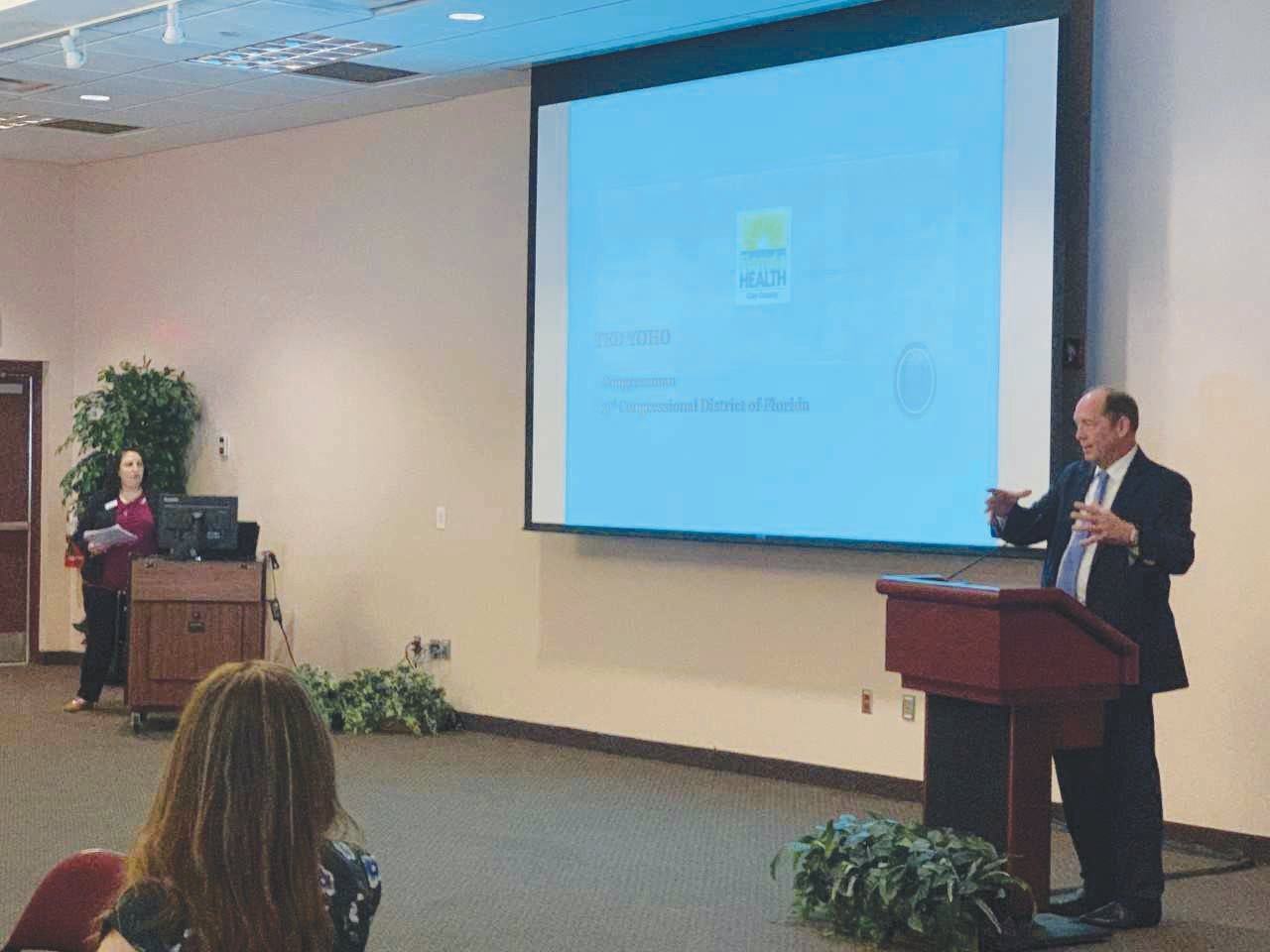Addiction, mental health are biggest concerns In Community Health Assessment report
ORANGE PARK – Like most, Clay County faces the challenges of drug use, obesity, access to healthcare and mental health, according to the Department of Health and Health Planning Council of …
This item is available in full to subscribers.
Attention subscribers
To continue reading, you will need to either log in to your subscriber account, or purchase a new subscription.
If you are a current print subscriber, you can set up a free website account and connect your subscription to it by clicking here.
If you are a digital subscriber with an active, online-only subscription then you already have an account here. Just reset your password if you've not yet logged in to your account on this new site.
Otherwise, click here to view your options for subscribing.
Please log in to continueDon't have an ID?Print subscribersIf you're a print subscriber, but do not yet have an online account, click here to create one. Non-subscribersClick here to see your options for subscribing. Single day passYou also have the option of purchasing 24 hours of access, for $1.00. Click here to purchase a single day pass. |
Addiction, mental health are biggest concerns In Community Health Assessment report
ORANGE PARK – Like most, Clay County faces the challenges of drug use, obesity, access to healthcare and mental health, according to the Department of Health and Health Planning Council of Northeast Florida’s preliminary Community Health Assessment.
Health Planning Council of Northeast Florida Director of Health Planning Emily Suter and Health Planner Kim Millrood, and DOH Chief Health Strategist Courtney Ellis presented the assessment findings.
For behavioral health, officials found that Clay’s percentage of overweight and obese adults was usually 3-4% higher than state averages. Another statistic measured Clay County residents who have a 10-minute walk to two food sources, healthy and fast food. Though both were at least 15% lower than state averages, 12.6% of county residents could walk to a healthy food source, while 19.7% could walk to a fast food restaurant.
A youth substance abuse survey, 1,394 students in grades 6-12, showed Clay County’s youth’s on par with state levels of drinking and drug use in the past 30 days. Cigarette use was higher for Clay County, 16.9% of youth reporting compared the state’s average of 13.7%. The 30-day youth drug use reported has decreased for all abuses since 2008, the report said.
Clay County has about 212,000 residents. For health outcomes, the cancer mortality rate per 100,000 residents was 175.8 for Clay County, though it has decreased since 2013. The state average was 151.9. Clay found itself marginally higher than state averages for heart disease, unintentional injury and suicides per 100,000 people.
About 88.1% of the county's residents had health insurance coverage according to the report. However, the county’s health providers per 100,000 for licensed providers fell short of state averages for fields such as physicians, pediatricians and dentists.
In the County Health rankings released last month, Clay County ranked 16th in health outcomes, 13th for health factors, 20th in clinical care and sixth for social and economic factors, but middle of the pack for health behaviors. The county was ranked 16th overall.
Residents were asked their top-five health problems in Clay County. Addiction, mental health/suicides, obesity, child abuse/neglect and domestic violence received the highest vote totals. Participants voted for substance abuse services, mental health counseling and alternative therapy when asked, “What health care services are difficult to obtain in your community?”
From numerous interviews, surveys, focus groups and other data, Clay County DOH Administrator and Health Officer Heather Huffman said the purpose of the assessment was identifying significant health needs, prioritizing improvements and collaborating with community partners to remove barriers.
“If we don’t do that [analysis] then we may do things that aren't needed in our community and missing the things that are needed,” Huffman said.
Rep. Ted Yoho, (R-3) told the audience the country’s needs to combat the opiate epidemic and address mental health. He asked the crowd who had been affected by opiates or other drug use in their family.
After mentioning the enormous burden on the health care system and to first responders, Yoho said the country must address the need to consume drugs on a societal level and curb the flow of drugs from America’ largest heroin supplier, Mexico.
“We’re dealing with it now,” Yoho said. “It’s robbing people of their future.”
When audience members were asked similar questions about the pressing health issues in the county, the answers were similar. The report and survey results showed there was a long way to go, Suter said. Officials said the final report would be released near the end of the month.
“Sometimes when we think of health, we only think of what happens in a doctor’s office or in a hospital. We must think of health with a wider scope,” Suter said. “Not just when people are sick, but also ways to prevent illness and healthy lifestyles.”








